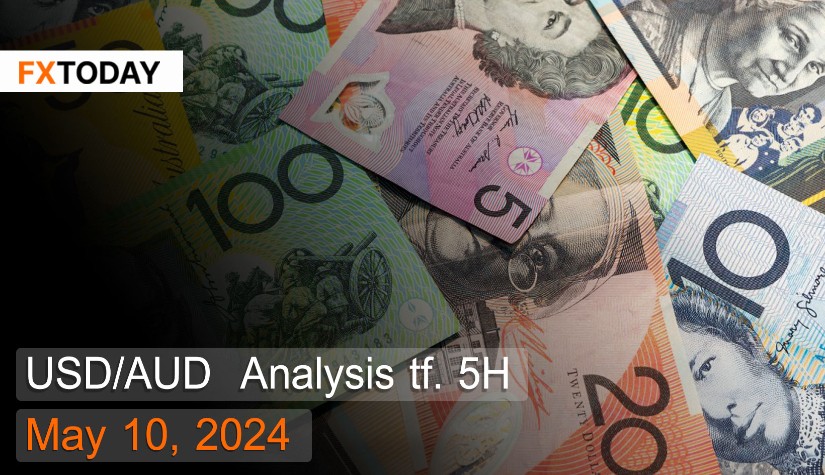Australia's inflation rate remains high.
The Australian dollar has weakened to over 1.51 Australian dollars per US dollar due to the Reserve Bank of Australia's decision to maintain interest rates and uncertainty about interest rate cuts. Additionally, the strong labor market continues to push inflation higher. Pressure on the Australian dollar persists due to concerns about interest rates.
The Reserve Bank of Australia has kept the interest rate at 4.35% in its May meeting, in line with market expectations. However, the central bank has acknowledged that achieving the inflation target may not be as smooth as anticipated, even though cost pressures are beginning to ease. The stable inflation rate in the service sector may prevent inflation from decreasing as expected. Nevertheless, policymakers must ensure that inflation returns to the 2-3% range before considering a rate cut, which is expected to occur later this year. The RBA needs to monitor global economic conditions, domestic trends, inflation trends, and labor market conditions closely.
Retail sales in Australia decreased by 0.4% monthly in March, reversing the 0.2% growth from the previous month. This decline is attributed to reduced consumer spending due to high interest rates, with significant declines in clothing and footwear sales followed by household goods.
Job advertisements in Australia increased by 2.8% monthly in April, with increased job openings across multiple industries indicating business stability within the country. Madeline Dunk, an economist at ANZ, noted that while job advertisements remained stable on average in the first quarter, they were higher than pre-pandemic levels by 36.5%.
Australia's inflation rate stood at 3.6% year-on-year in the first quarter of 2024, higher than the market's expectation of 3.4%. However, this is the lowest figure since the fourth quarter of 2021, as inflation in goods declined for the sixth consecutive quarter. Inflation in the service sector also slowed slightly on a quarterly basis and continues to show a downward trend.
Techical analysis data (5H)
Resistance: 1.5147, 1.5166, 1.5184
Source: Investing.com
Buy/Long 1: If the price touches support in the price range of 1.5094 - 1.5111 but cannot break the support at 1.5111, you may set a TP at approximately 1.5166 and SL at around 1.5074 or according to your acceptable risk.
Buy/Long 2: If the price breaks the resistance in the price range of 1.5147 - 1.5166, you may set a TP at approximately 1.5184 and SL at around 1.5094 or according to your acceptable risk.
Sell/Short 1: If the price touches resistance in the price range of 1.5147 - 1.5166 but cannot break the resistance at 1.5147, you may set a TP at approximately 1.5094 and SL at around 1.5184 or according to your acceptable risk.
Sell/Short 2: If the price breaks the support in the price range of 1.5094 - 1.5111, you may set a TP at approximately 1.5074 and SL at around 1.5166 or according to your acceptable risk.
Pivot point May 10, 2024 06:51 PM. GMT+7
|
Name
|
S3
|
S2
|
S1
|
Pivot Points
|
R1
|
R2
|
R3
|
| Classic | 1.5074 | 1.5094 | 1.5111 | 1.513 | 1.5147 | 1.5166 | 1.5184 |
| Fibonacci | 1.5094 | 1.5107 | 1.5116 | 1.513 | 1.5144 | 1.5153 | 1.5166 |
| Camarilla | 1.5118 | 1.5121 | 1.5124 | 1.513 | 1.5131 | 1.5134 | 1.5138 |
| Woodie's | 1.5072 | 1.5093 | 1.5109 | 1.5129 | 1.5145 | 1.5165 | 1.5182 |
| DeMark's | - | - | 1.5102 | 1.5126 | 1.5138 | - | - |
















